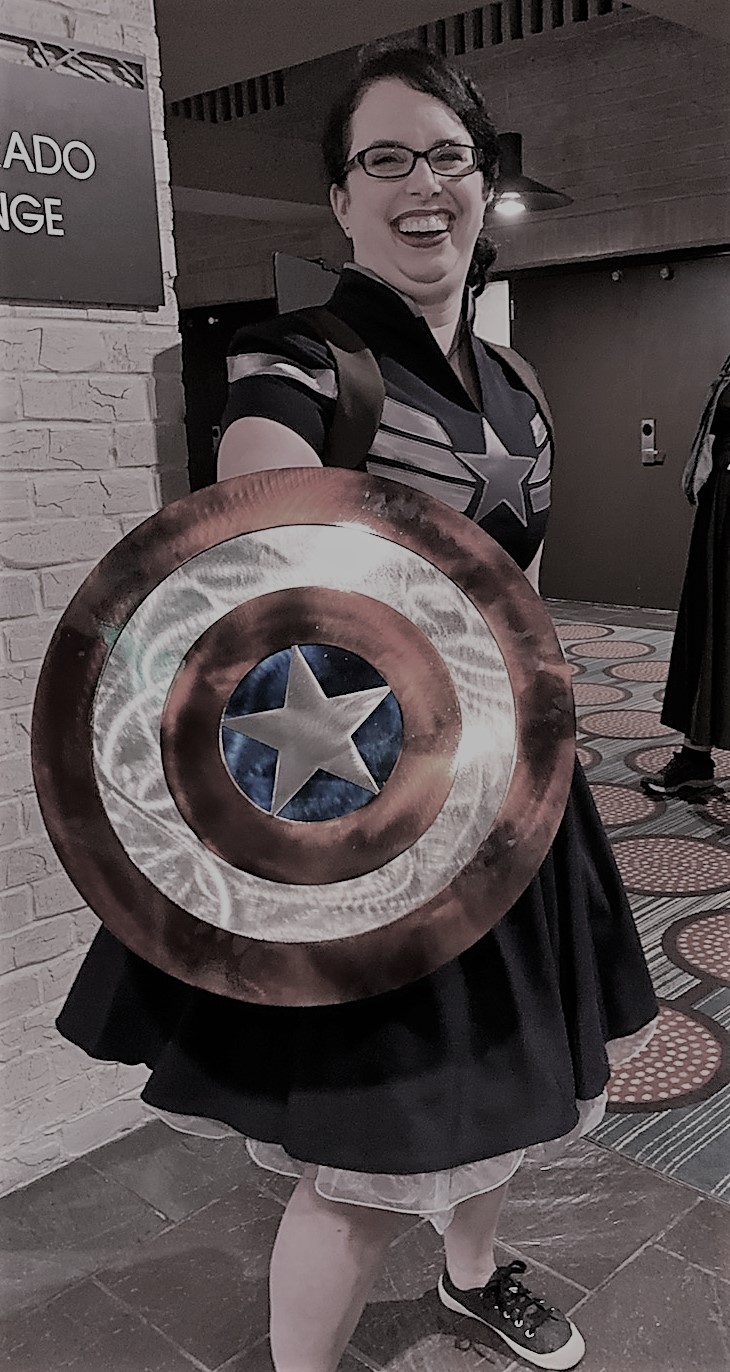Thank you to everyone who donated generously to fund our scholarships. Fundraising for our 2021 scholarships is complete, but if you’d like to donate to Sirens itself, please visit our donation page to see the types of support we can most use.
In 2021, because of the generosity of the Sirens community, we are pleased to offer thirteen scholarships across four categories: those who are Black, Indigenous, and people of color; presenters who have submitted exemplary programming proposals; those with financial hardships; and librarians, educators, and publishing professionals. Please see our scholarships page for more information and, in 2021, instructions on how to apply..
Sirens has a mission: to provide a welcoming space for our attendees to discuss the remarkable, diverse women and nonbinary people of fantasy literature. As part of that mission, we specifically craft Sirens to include and amplify the many brilliant voices of our attendees. Our greatest hope is that these voices will represent both different perspectives—reader, scholar, educator, librarian, author—and individuals of different genders, sexualities, races, religions, and abilities.
Each year, we invite the Sirens community to help make attendance possible for a number of individuals. As in past years, these scholarships will support those who are Black, Indigenous, and people of color; those submitting exemplary programming proposals; those with financial hardships; and librarians, educators, and publishing professionals. These perspectives are critical to our conversations, and these individuals sometimes find it difficult to attend without additional support.
While our 2020 conference has been postponed until 2021, and we awarded scholarships for this particular conference already in 2020, we think that this postponement allows us to do more good in this world—so we are fundraising for additional scholarships for our 2021 conference. While many have been affected by current events, we are hopeful that those in the Sirens community who can afford to provide a bit more support will do so.
We are asking for your help! We want to provide twelve additional Sirens scholarships for our 2021 conference. To do so, we need to raise $4,200. That amount will provide a Sirens registration and a round-trip Sirens Shuttle ticket to each recipient.
What kinds of scholarships will be available?
Scholarships will cover both a Sirens registration and a Sirens Shuttle ticket for each recipient. We’re hoping to receive enough funds to cover the following proposed scholarships, designed to serve a multitude of potential attendees. But in the event that we don’t, we will fund scholarships in the following order:
-
Black, Indigenous, and People of Color
Black and Indigenous people, and people of color, live in a world that often tells them that they don’t belong or that their voices don’t matter, particularly in speculative spaces. One way to support these individuals at Sirens and amplifying their voices is to provide scholarships specifically for them. Sirens hopes to provide three Sirens registrations and round-trip Sirens Shuttle tickets in order to help Black and Indigenous people, and people of color, attend Sirens. These scholarships will be awarded to applicants by random selection. -
Programming Presenters
Every voice at Sirens is vital to the vibrancy, diversity, and inclusiveness of our conversations, and we always appreciate the skill, talent, and expertise that our accepted programming presenters have volunteered to share with our community. This year, Sirens hopes to award three people who submit exemplary programming proposals (in the spring of 2021) with a Sirens registration and round-trip Sirens Shuttle ticket. (Selected presentations with co-presenters who have opted in for scholarship eligibility may share the funds across selected presenters.) These are merit-based scholarships, based on presentation summaries and abstracts only, and will be selected by a committee. Please note that if you’ve received a programming scholarship in the last two years, you are not eligible this year (though your co-presenters may be) and that proposals submitted in the spring of 2020 are not eligible for our 2021 scholarships. -
Financial Hardship
People sometimes say that money makes the world go ’round; we’d like to counter with the idea that generosity makes the world go ’round. Not all individuals who wish to attend Sirens can afford to do so, and you can help make Sirens a possibility for those who can’t. Sirens would like to award three recipients with a Sirens registration and round-trip Sirens Shuttle ticket, in the hopes that this will enable them to attend Sirens in the fall. These scholarships will be awarded to qualified applicants by random selection. Please note that if you’ve received a financial hardship scholarship in the last two years, you are not eligible this year. -
Professionals
Librarians, educators, and publishing professionals provide exceptional services to book-loving communities—and are, especially at the beginning of their careers or when working for underserved populations, often paid poorly for their efforts. Therefore, we would like to raise funds to provide a Sirens registration and round-trip Sirens Shuttle ticket to one librarian, one educator, and one publishing professional (including agents and booksellers). Their work—and their voices—are critically important to our conversations. These scholarships will be awarded to qualified applicants by random selection. Please note that if you’ve received a professionals scholarship in the last two years, you are not eligible this year.
Why doesn’t Sirens fund the scholarships?
Sirens endeavors to keep the cost of Sirens as low as possible for everyone. Each year, we raise thousands of dollars in donations, auction proceeds, and other fundraising to cover the cost of presenting Sirens itself—costs that include not only overhead items like audiovisual equipment and insurance, but also a portion of individual attendee costs like food and registration t-shirts.
We could simply raise our registration prices. But instead, we suppress our registration prices—and then ask those who are able to pay more to donate, to purchase auction items, and to fund scholarships. We hope that, if you can, you’ll help us raise these funds!





 By day, Amy Tenbrink dons her supergirl suit and handles strategic and intellectual property transactions as an executive vice president of a major media company. By night, she dons her supergirl cape, plans literary conferences, bakes increasingly complicated pastries, and reads 150 books a year. She is a co-founder and current co-chair of Sirens, an annual conference dedicated to examining gender and fantasy literature. She likes nothing quite so much as monster girls, flagrant ambition, and a well-planned revolution.
By day, Amy Tenbrink dons her supergirl suit and handles strategic and intellectual property transactions as an executive vice president of a major media company. By night, she dons her supergirl cape, plans literary conferences, bakes increasingly complicated pastries, and reads 150 books a year. She is a co-founder and current co-chair of Sirens, an annual conference dedicated to examining gender and fantasy literature. She likes nothing quite so much as monster girls, flagrant ambition, and a well-planned revolution.




Connect with the Sirens community
Sign up for the Sirens newsletter